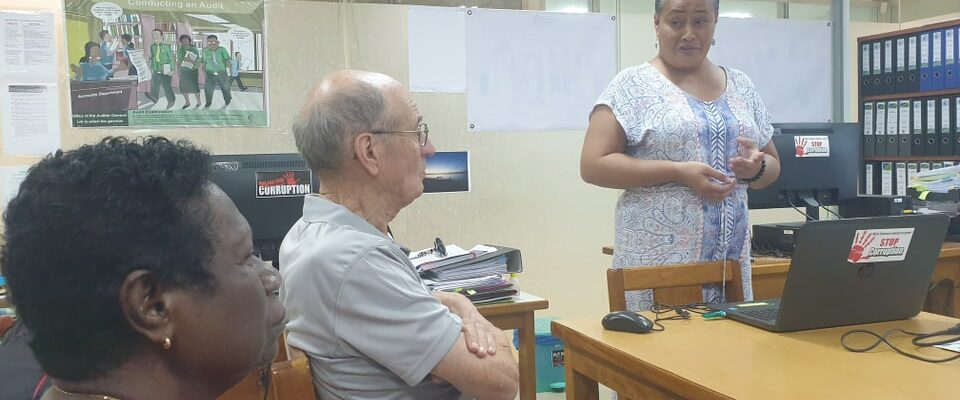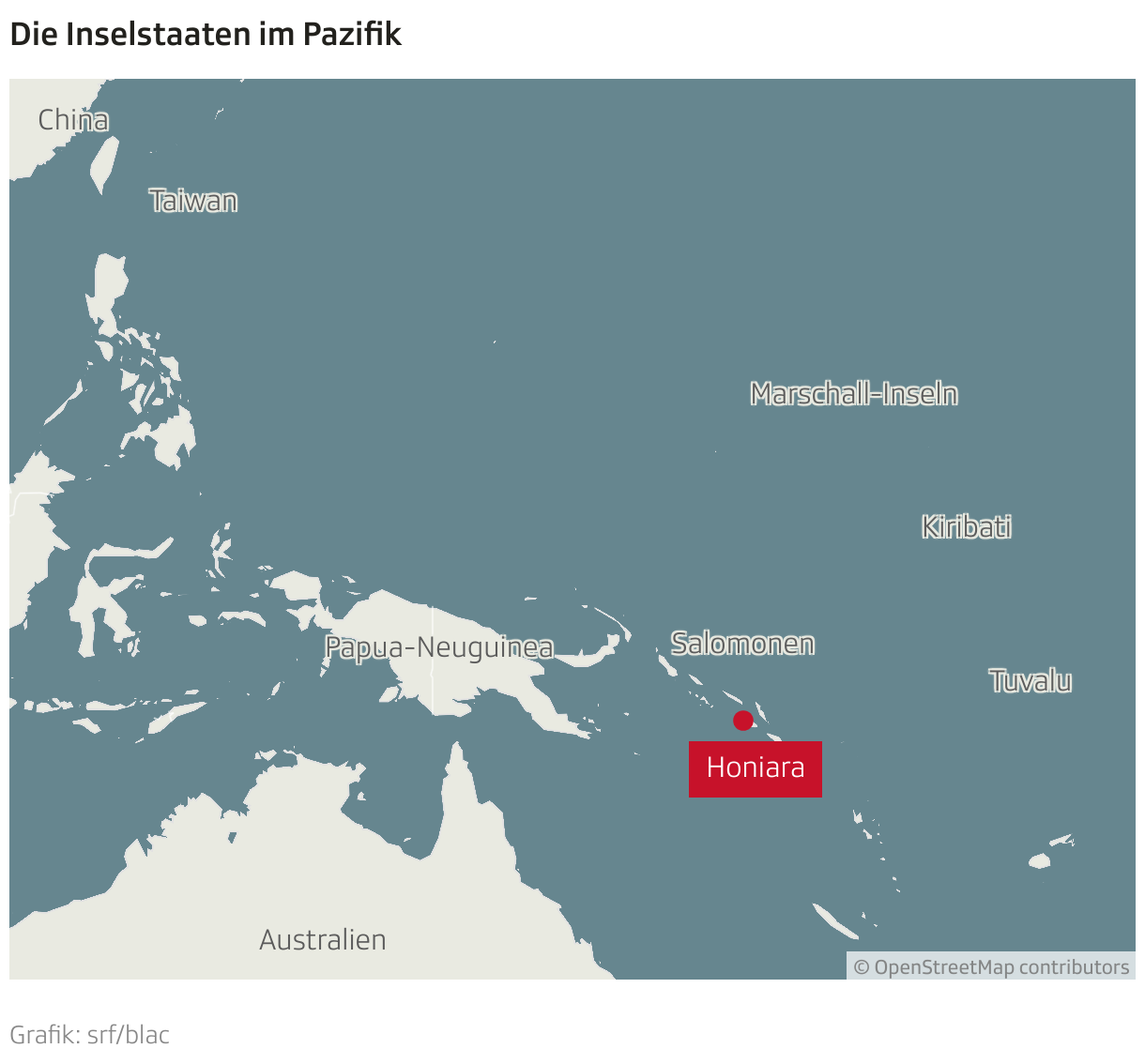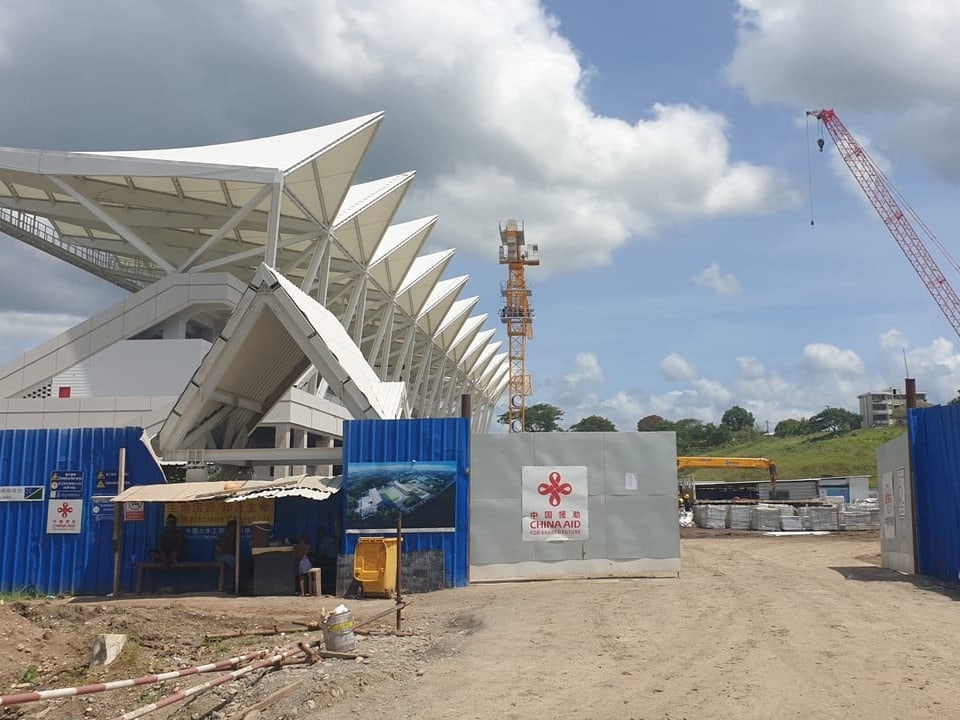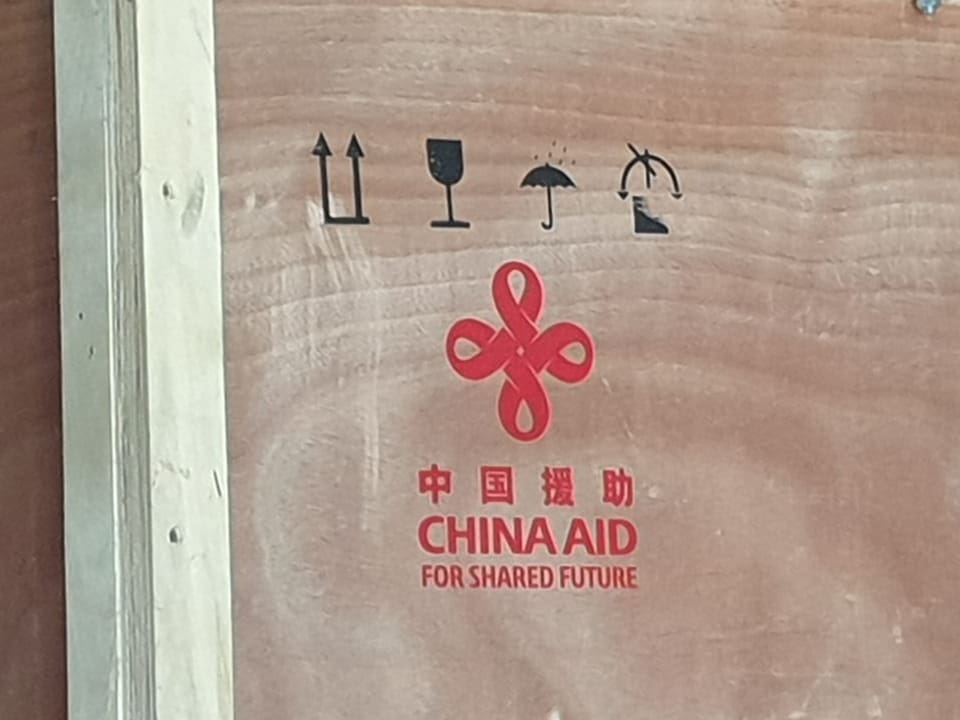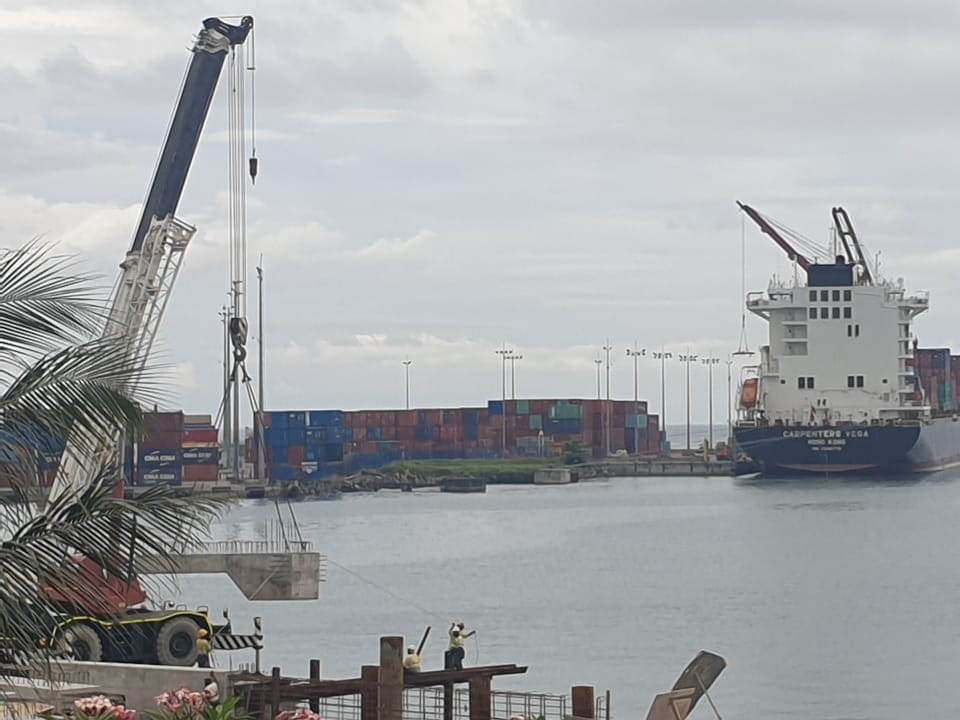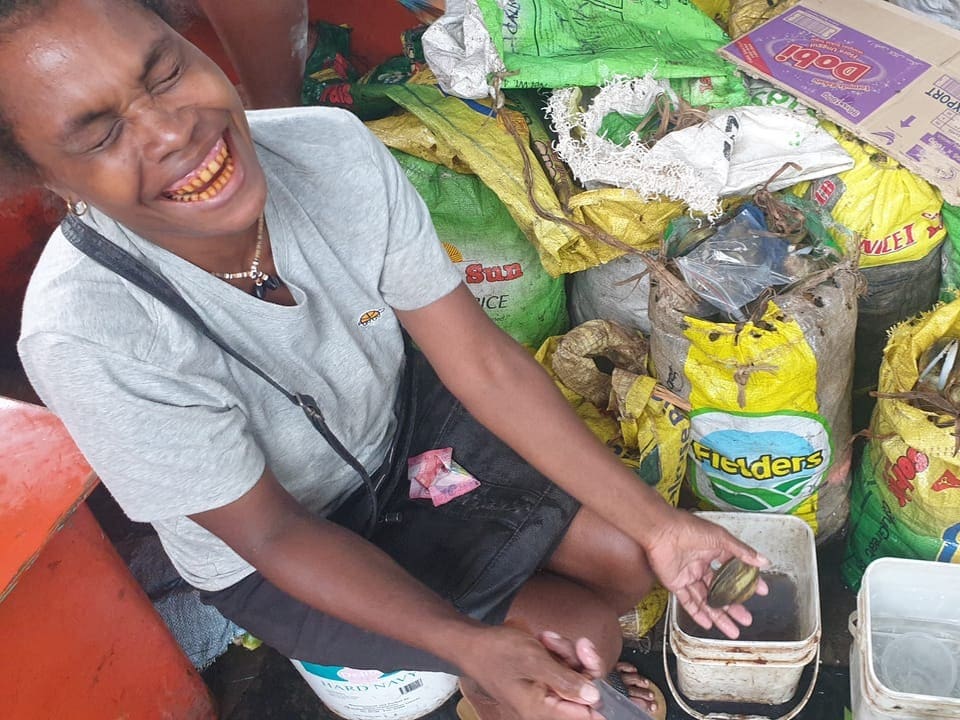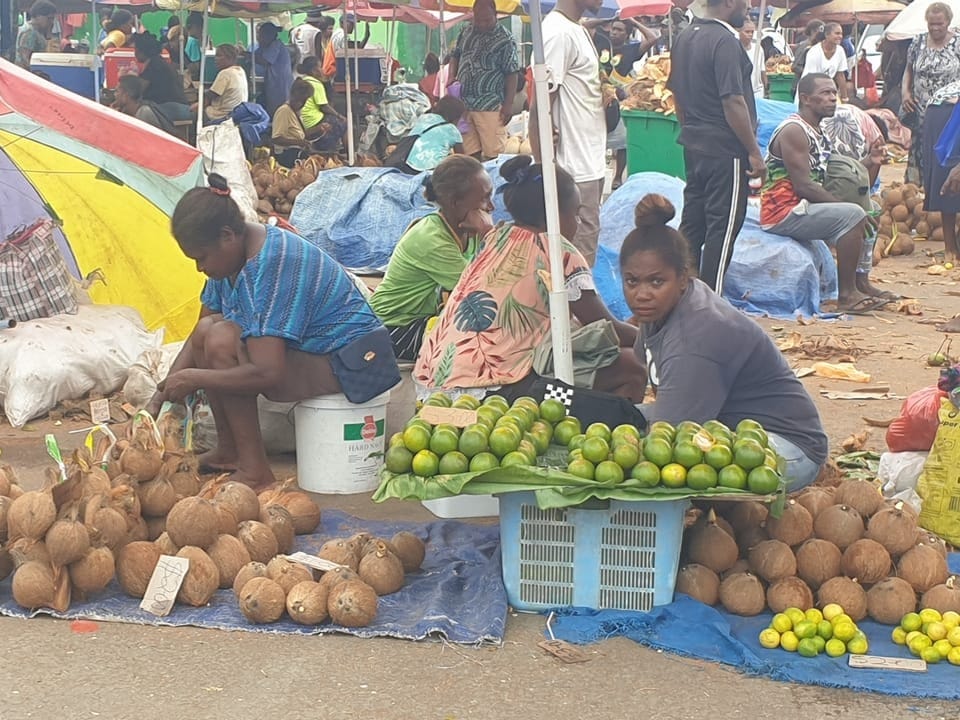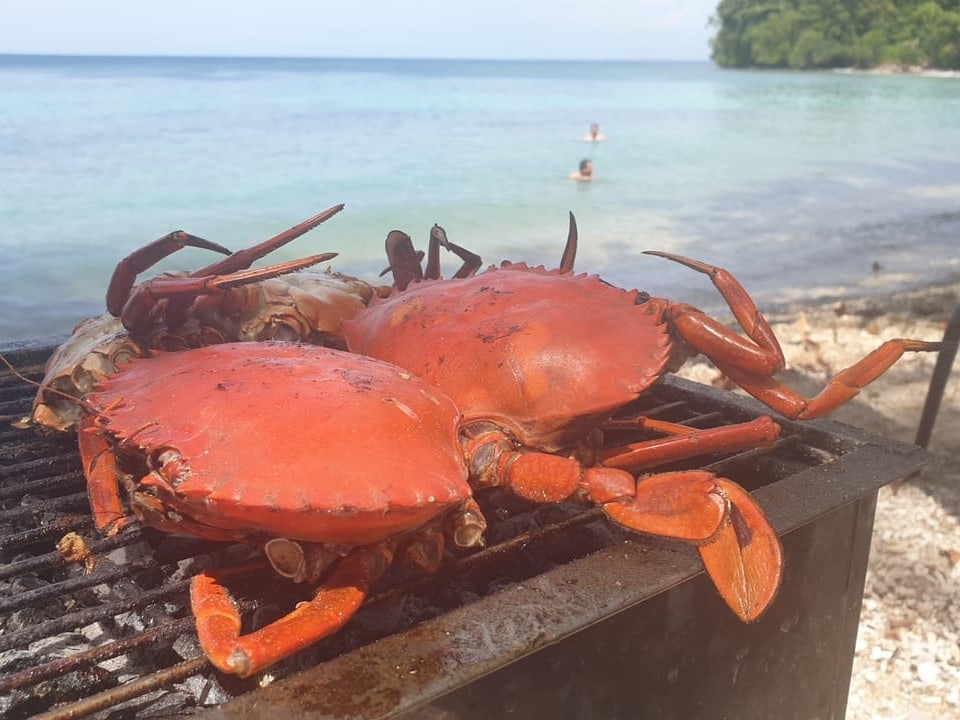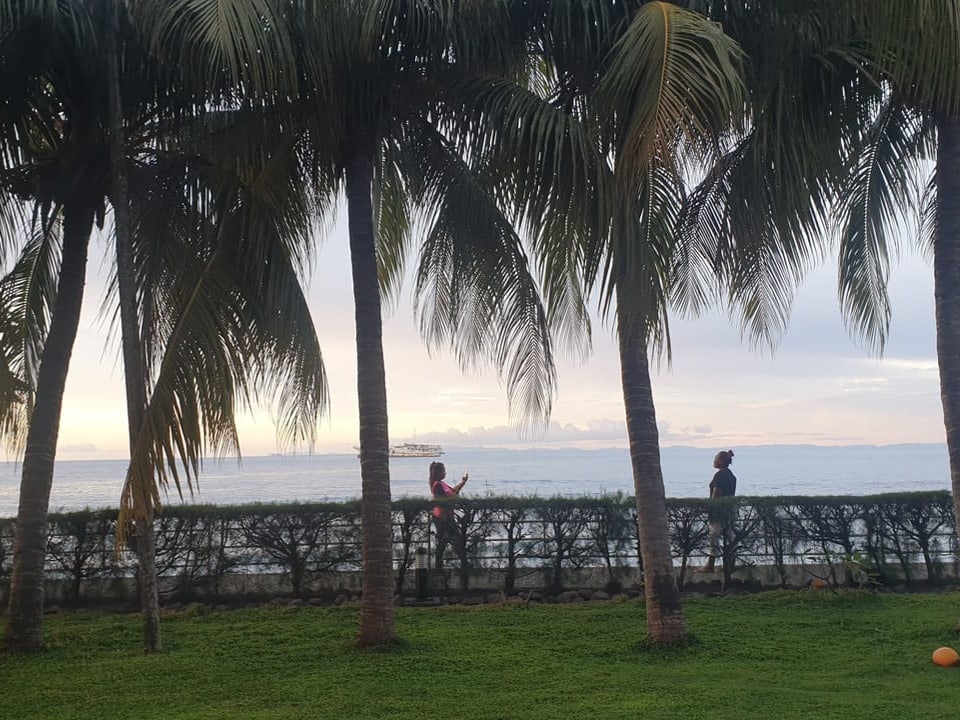In the overcrowded courtyard of the Honiara hospital, mothers with feverish children and elderly people with festering ulcers wait in the humid tropical heat until a doctor can examine them. They wait for hours. Still, no one complains. In the Solomon Islands, patience is stronger than pain.
You get the feeling that politicians don’t care about this.
In the meeting room, Hermann Oberli receives the report from the night doctors. While others his age have been living in retirement for years, the 83-year-old Swiss surgeon listens carefully, asks questions and examines the statements of the young local doctors. “A man was dead on arrival,” reports a young surgeon. He fell from a truck. Another patient is waiting for the hand surgeon after an accident with a circular saw.
Legend:
Hermann Oberli and Ruth Liloqula (left).
Urs Wälterlin
Three decades ago, the Swiss established trauma surgery in the Solomon Islands. Since then, with the help of other Swiss specialists, he has trained dozens of doctors from the South Pacific region. It is help for self-help in a country with an annual per capita income of only around 2,000 francs.
Even after so many years, Hermann Oberli complains about the lack of resources the hospital has to cope with. It wouldn’t work without donations from abroad. The stretching frame for leg fractures comes from the Interlaken Hospital, the metal plates for bone fractures come from Meiringen.
For Oberli it is clear: politicians are to blame for the situation. “They can travel to Australia to receive medical treatment there. That costs an enormous amount of money.” Money that is no longer available for public health care. “You get the feeling that politicians don’t care about this,” says Oberli.
Corruption is rampant
A few streets away, in a gray commercial building, Ruth Liloqula agrees with the doctor. She is the head of Transparency International. The organization specializes in exposing corruption, a global problem that particularly affects the Solomon Islands, explains Liloqula. Nothing will change that quickly: “Because China provides the money that keeps the government in power.”
The government is that of Manasseh Sogavare. The 68-year-old prime minister surprised the United States and Australia in 2019 when he announced the establishment of diplomatic relations with China. Before that, the Solomon Islands had been the main Pacific allies of Taiwan, which is close to the West but viewed by Beijing as a breakaway province of China.
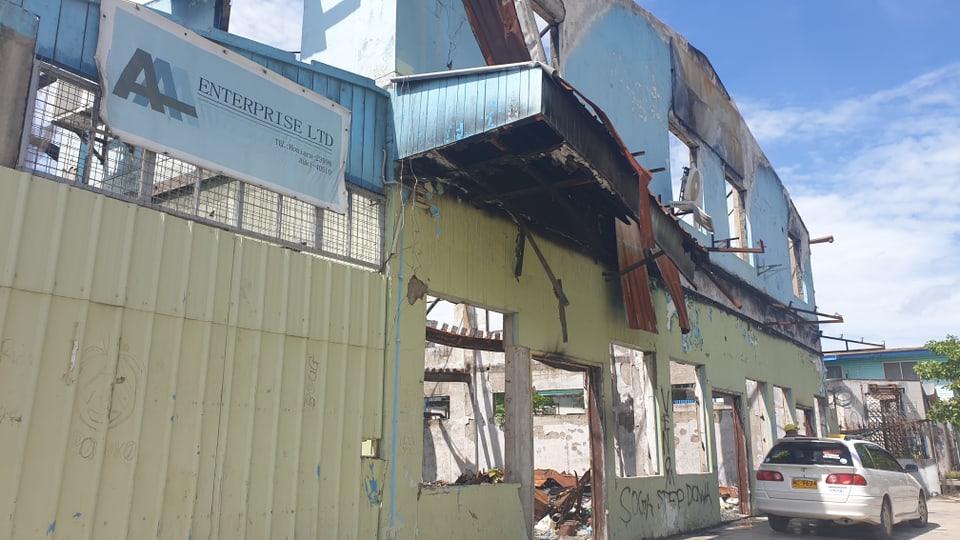
Legend:
Still visible: the damage to the Chinese quarter in Honiara after the two-day riots in November 2021.
Urs Wälterlin
The central government’s decision on the main island of Guadalcanal met with strong resistance. The neighboring province of Malaita rebelled – the government there wanted to stay with Taiwan. In 2021, the Chinese Quarter in Honiara went up in flames.
You don’t have to look far to find signs of Chinese generosity in Honiara. Tarred roads where until recently there were only gravel paths. And then the stadium, the main venue for the recent Pacific Games, a kind of Olympic Games in the Pacific: For Sogavare, the facility with 10,000 seats is an absolute prestige object. It cost 80 million francs – paid for by China.
For Hermann Oberli it is clear: “This is only possible because the Prime Minister is so corrupt. The Chinese get everything from him.” Tropical wood, for example, fish and seafood.
But analysts say that Beijing is not only interested in such raw materials in the Solomon Islands and the rest of the Pacific because they are exploited by Chinese companies and can therefore contribute to China’s food and supply security.
Although the countries are very small and have practically no power, they have a full voice in international organizations such as the UN.
Perhaps even more important to the Communist Party under President Xi Jinping is the political support that small states can offer. “Although the countries are very small and have practically no power, they have a full voice in international organizations such as the UN,” says Alfred Palazzo, professor of war studies in Canberra. Experts also do not rule out the construction of a military base.
Critics say Australia, as governor of the West in the Pacific, has failed to maintain contact with the small Pacific island states in recent years.
Trouble in Australia
It is a valid criticism – successive conservative Australian governments have had little interest in close relations with small countries in recent years. The Pacific states had called on Canberra with increasing urgency to do more to combat the existential threat of sea level rise. Countries like Kiribati and Tuvalu are literally threatened with extinction within decades.
As a leading coal exporter, Australia is largely responsible for global warming. However, the Solomonic journalist Dorothy Wickham has a certain understanding of Australia’s attitude: “Canberra had enough of supporting us with taxpayers’ money for years,” she says. “China saw the opportunity and sat in the niche.”
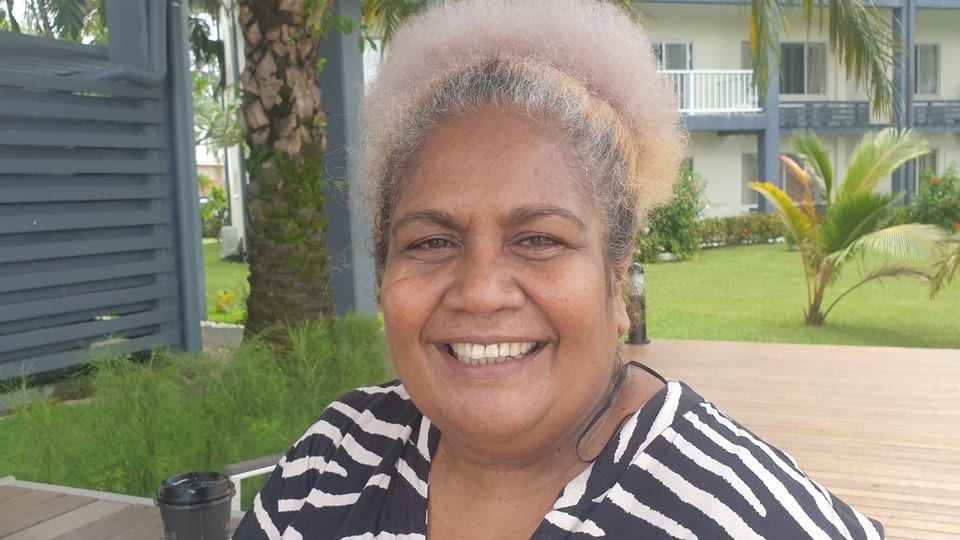
Legend:
The journalist Dorothy Wickham sees the reasons for China’s rapprochement with many of the Pacific states also in their distancing themselves from Australia.
Urs Wälterlin
In July, Prime Minister Manasseh Sogavare signed a security deal with Beijing. Police officers are learning from Chinese instructors how they should deal with opponents of the regime during protests in the future. A government critic told SRF that “after taking over economic control, the Solomon Islands are now also threatened with losing social and political control to Beijing.”
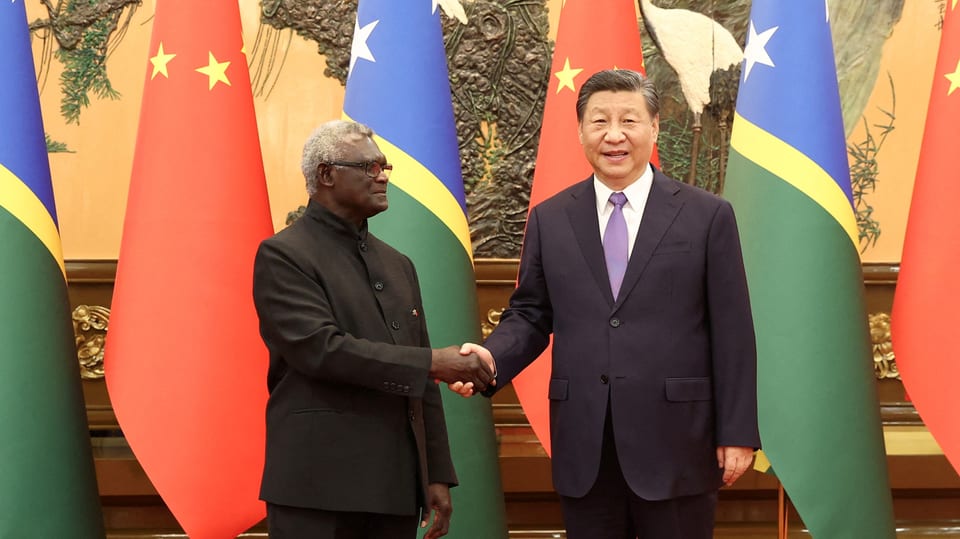
Legend:
Prime Minister Manasseh Sogavare (left) during a visit to Beijing: shaking hands with Chinese President Xi Jinping in July 2023.
Reuters/ho
Corruption watchdog Ruth Liloqula also notes that criticism of the government is becoming more difficult. Sogavare threatened foreign media that asked critical questions with an entry ban.
The politicians have total control over the funds from Beijing.
China is also interfering in the democratic process ahead of next year’s parliamentary elections, according to the corruption watchdog. Beijing supports MPs in the provinces with cash to ensure continued loyalty. Liloqula: “The politicians have total control over these funds.” They used part of the money to secure their position in the electoral districts – and with it the re-election of Prime Minister Sogavare’s government.
What happens to the rest of the money can only be speculated.
